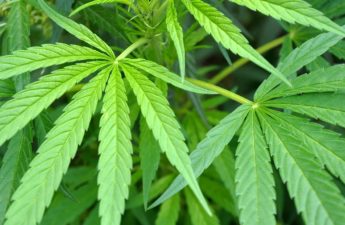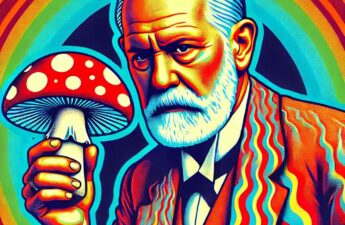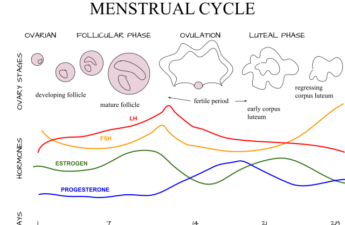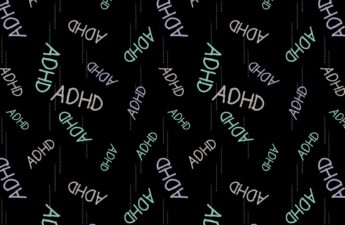Category: Mental Health
‘Pandemic babies’ turn 5: Here’s what research tells us about their development and remarkable resilience
Given the effects early-life stress exposure has on a child’s development, many people worried the pandemic would create a generation of children who wouldn’t achieve their potential. But the most recent evidence suggests that pandemic babies are doing better than anyone expected.
Eating disorders don’t just affect teen girls. The risk may go up around pregnancy and menopause too
Eating disorders and body image concerns are most common in teenage girls, but their prevalence in adults, particularly in women, aged in their 30s, 40s and 50s, is actually close behind.
Decluttering can be stressful − a clinical psychologist explains how personal values can make it easier
Hoarding disorder is a psychiatric condition defined by urges to save items and difficulty discarding current possessions. For adults with “clinically severe” hoarding disorder, this leads to a level of household clutter that impairs daily functioning and can even create a fire hazard.
‘A scarlet letter’: States aim to end stigma of doctors seeking mental health care
More than 40% of physicians, as well as medical school students and residents, cite fear of disclosure requirements on licensure forms as a main reason why they don’t seek mental health care.
Want to ward off the winter blues? Start by counting your steps – new research
We found that reaching 5,000 steps or more per day was associated with fewer depressive symptoms, and the prevalence of depression was 42% lower in adults who took 7,500 steps or more per day.
With more Americans able to access legalized marijuana, fewer are picking up prescriptions for anti-anxiety medications – new research
Marijuana access introduces an alternative treatment to traditional prescription medication that may provide easier access for some patients.
Hallucinogens approved for treating psychiatric disorders: what does the science say?
Hallucinogens are now being presented as a breakthrough in the treatment of severe psychiatric disorders, such as depression or post-traumatic stress disorder, sometimes in combination with psychotherapy).
Despite being presented as innovations, the therapeutic potential of psychedelics is not a new discovery. In the 1960s and 70s, these substances were explored for medical use but quickly fell out of favour due to regulatory restrictions.
Now, in 2024, the question remains: Are psychedelics genuinely effective for treating psychiatric disorders?
You could be stress eating these holidays – or eating your way to stress. 5 tips for the table
Stress eating can include binge eating, grazing, eating late at night, eating quickly or eating past the feeling of fullness. It can also involve craving or eating foods we don’t normally choose.
What is premenstrual dysphoric disorder? And how is it different to PMS?
Periods can feel like an unwanted guest, bringing cramps, mood swings and exhaustion.
But how do you know if what you are experiencing is standard premenstrual syndrome (PMS), or something more severe?
Premenstrual dysphoric disorder (PMDD) and the premenstrual exacerbation of an existing mental illness can also occur in the lead up to your period.
Eight reasons why ADHD diagnoses are increasing
For a long time it was assumed that somewhere between 5 and 6% of children have attention-deficit hyperactivity disorder (ADHD). But the rates, in practice, are often higher. The American Centers for Disease Control and Prevention put the prevalence at 11.4% in children in 2022.
Americans own guns to protect themselves from psychological as well as physical threats
Contemporary American gun ownership may have conflicting messages embedded within it. First, a gun is a thing you can use to bolster your fundamental psychological needs to feel safe, to feel in control and to feel like you matter and belong. Second, having a gun focuses your attention on the dangers of the world.
Are cats good for our health?
Living with a cat can have a profound – and sometimes surprising – effect on our physical and mental health. Still, living with cats is not without risks.
Happiness class is helping clinically depressed school teachers become emotionally healthy − with a cheery assist from Aristotle
The heart of the course is an academic, personal and experiential exploration of evidence-based positive psychology interventions. These are intentional practices that can improve mood, optimism, relationships and physical wellness and offer a sense of purpose. Examples include gratitude, acts of kindness, savoring, mindfulness, mood music, practicing forgiveness and journaling about your best possible future self.
Can you change your personality? Psychology research says yes, by tweaking what you think and do
People can intentionally shape the traits they need to be successful in the lives they want. That’s contrary to the popular belief that your personality type places you in a box, dictating that you choose partners, activities and careers according to your traits.
Health News Headlines
Washington to keep abortion pill stockpile – Free COVID tests – Brett Favre diagnosed with Parkinson’s disease














